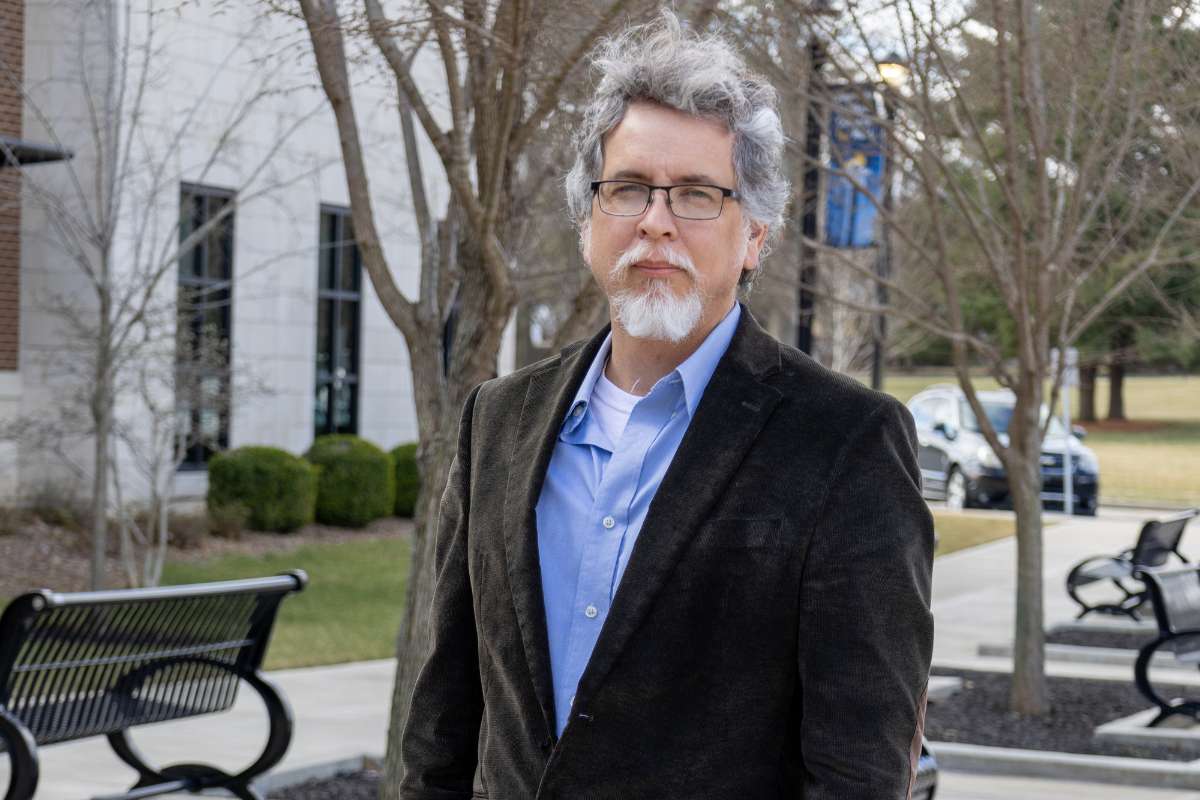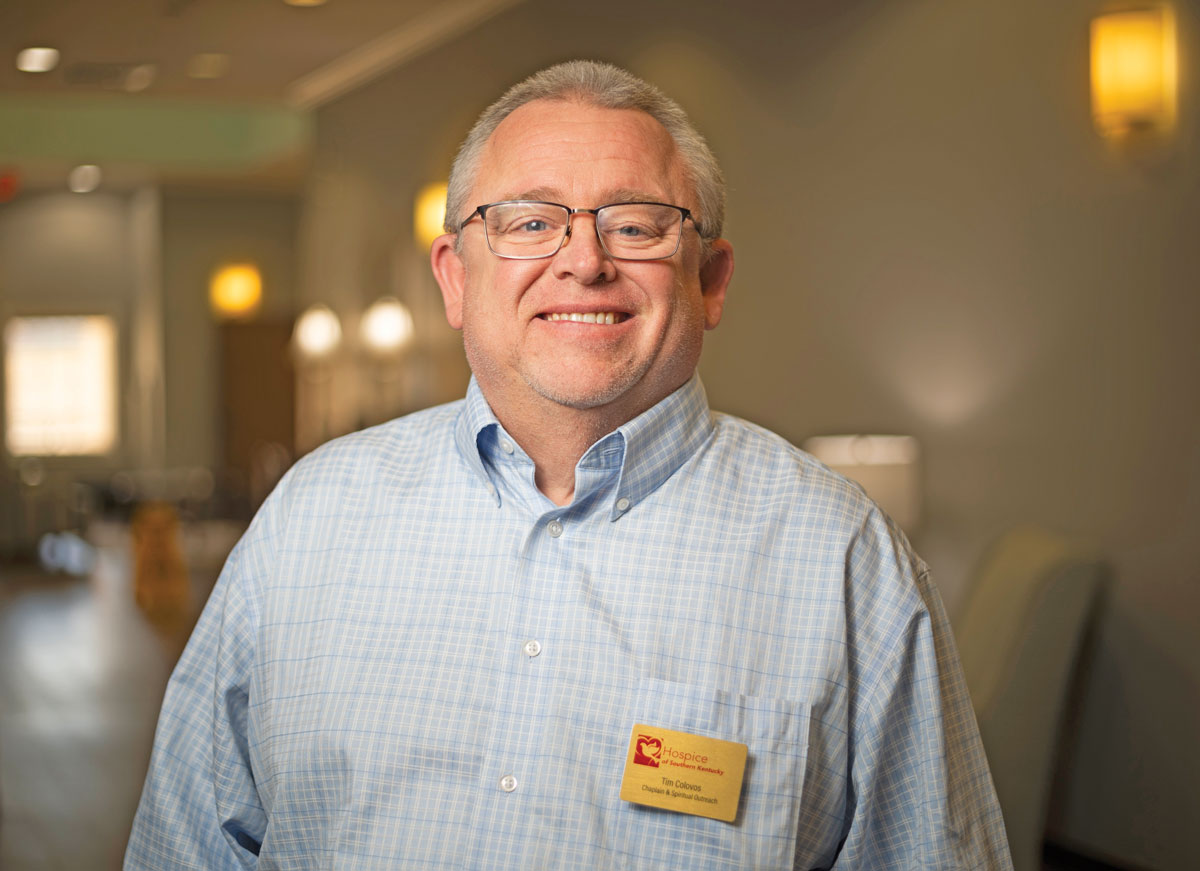PARAMEDICS ARE the heroes of every community, saving lives and providing care to patients and families across the country. In Bowling Green, one particular paramedic has gone above and beyond in his service to the community.
Tactical and community paramedic Steven Carpenter became a certified EMT in 1992 while working as a volunteer firefighter. Now, 31 years later, he is still doing the same job. For a paramedic, most of whom spend less than seven years in the field, this is particularly impressive. The reason, Carpenter said, is he sees paramedicine as a lifestyle.
“When I get a hold of something, I get really passionate about it, and I’ll live, eat, sleep, and breathe that thing,” Carpenter said. “That’s what happened with EMS.”
As a member of a volunteer service he could attend EMT classes for free and saw classes like vehicle extrication and confined space rescue as particularly fun. Eventually, he left the fire department to work full time as an EMT, but he and his co-workers still constantly found classes to take, so they attended one almost every free weekend.

“Being in the EMS in Kentucky, we still had access to all the stuff that Kentucky Fire Rescue Training would offer,” Carpenter said. “We continued to take those classes and expand our knowledge and skill base.”
In 2002, he went to his first SWAT school in Virginia and became a board-certified tactical paramedic, encouraged by his supervisor at Med Center Health. It wasn’t only his love of learning that prompted that decision, however.
“I’d already been in EMS for a while at that point and hadn’t really given tactical medicine much of a thought, but after September 11, 2001, it’s like, okay, the world has changed,” Carpenter said. “I felt like I needed to adapt my skill set to that new world that we were going to be living in.”
In fact, he is the only paramedic in Kentucky who is board certified as both a community paramedic and a tactical paramedic, as well as one of the few civilian tactical paramedics in the state.
“That’s something I’m really proud of,” Carpenter said. “I saw that opportunity to take those board examinations, and I was like, absolutely, I’m going to prove to myself that I know this job backwards and forwards, and I did that by passing those board exams.”

While both tactical and community paramedicine fall under the umbrella of Emergency Medical Services, there are differences. The community paramedicine program works with patients with chronic illnesses, helping them manage their condition and keeping them out of the hospital. With tactical medicine, Carpenter said the biggest difference is the environment. On a regular 911 call, a paramedic might sit with a patient, giving them treatment before or even instead of going to a hospital. Tactical paramedics, on the other hand, work in the field with law enforcement.
“We may not have that option to be able to sit where we are and get into in-depth patient care,” Carpenter said. “We may have to just deal with immediate life threats at first, and then figure out how to get ourselves out [of] this situation that we’re in and get this person to definitive medical care.”
Now, Carpenter leads Medical Center EMS’s Special Operations Medical Support Team as they work with local law enforcement, the Kentucky State Police, the FBI, and the American Federation of Teachers. He said the best part of the job is the camaraderie he gets to build with that team, as well as the help he gets to provide to families every day.
“You work shoulder to shoulder with these folks during some very stressful times,” Carpenter said. “There’s nothing like forging relationships on that anvil of adversity.”

Carpenter’s team doesn’t just work with the police, however, as they are all paramedics first. They still run 911 calls, transfer patients between hospitals, take nursing home residents to doctor appointments, and work special events and sports games, among other things.
“We’re more than just a ride when we come on that 911 call. Paramedics are highly, highly skilled pre-hospital care providers,” Carpenter said. “The general public just doesn’t realize the capabilities that we have as paramedics.”
Carpenter said he hopes more service-minded people go into the business because there is a lot of good that comes from it.
“We’ve got a very serious job set that needs to be done, and there’s so much enjoyment that you can get from just helping people,” Carpenter said. “It’s been a wonderful thing to have that opportunity.”
While he doesn’t want to retire, Carpenter said the job takes a physical toll, and he knows his time on the street is limited. Currently, he is working on a bachelor’s in emergency and disaster management and plans to get a master’s in public health as well. Still, he doesn’t know what will happen when he leaves EMS.
“The future’s always changing. The only constant I see in it is me and my wife taking whatever that journey is together,” Carpenter said. “Wherever God leads us, that’s where we’re going to go.” GN





















